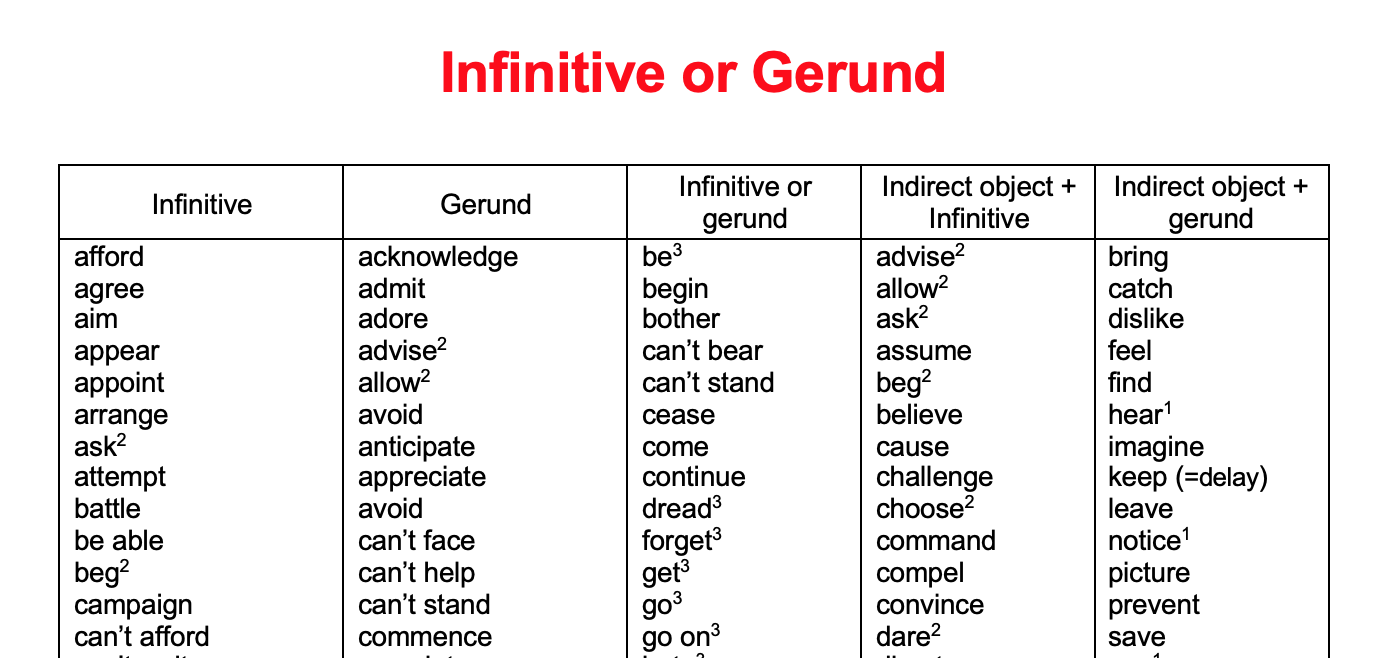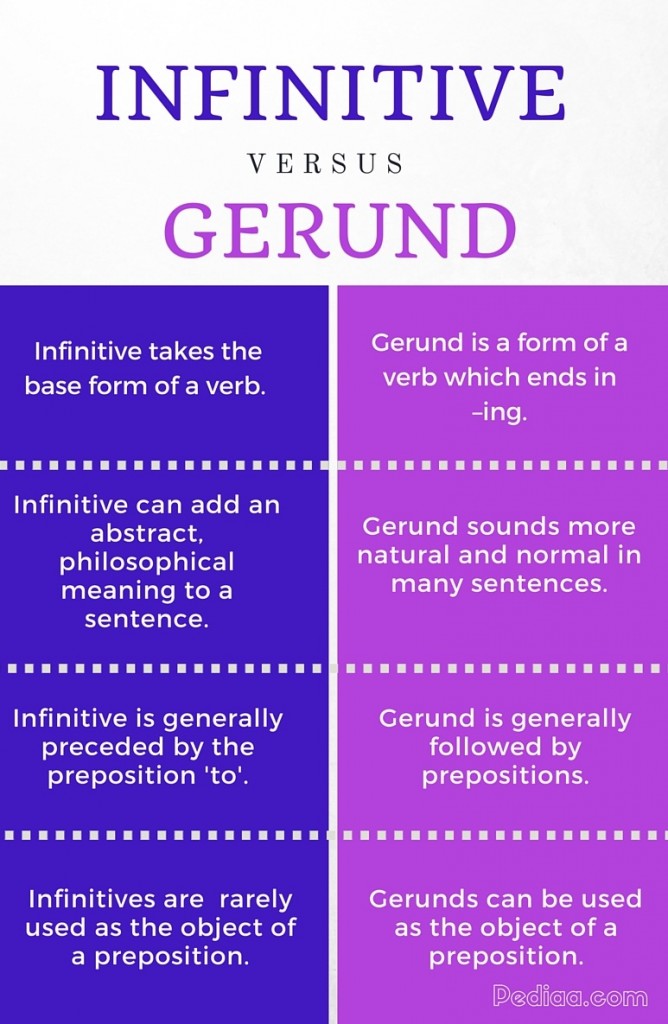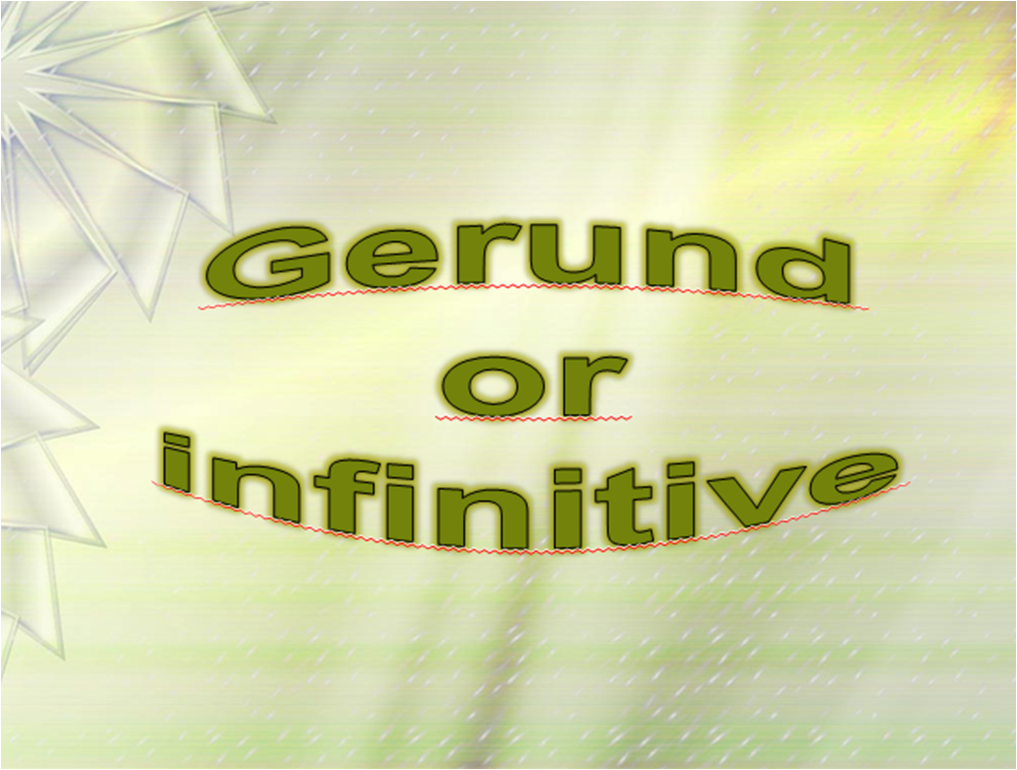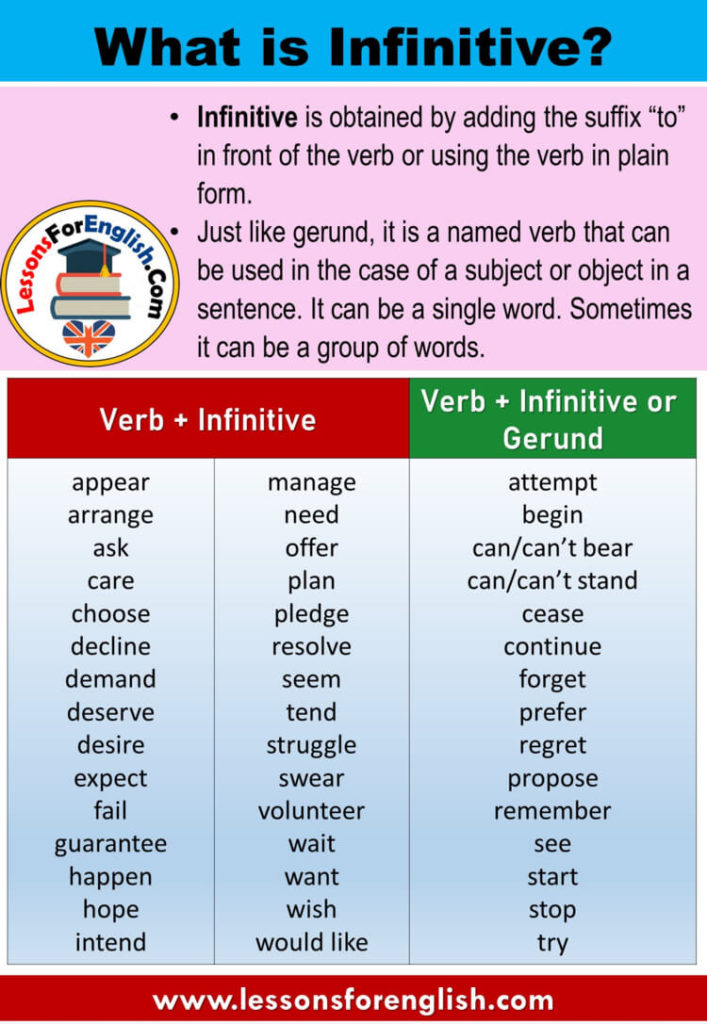Gerund or infinitive do, to do, doing TestEnglish
Gerund/Infinitive Quiz
After expressions with 'why' - why go out the night before an exam? Verbs that take the gerund or 'to + infinitive' with examples and exercises: Verbs with gerunds and infinitives part 1 Verbs with gerunds and infinitives part 2 Verbs with gerunds and infinitives part 3 Verbs with gerunds and infinitives part 4
gerund infinitive Quiz
Infinitive or Gerund Online exercises to improve your English Lingolia Plus English Just here for the exercises? Click here. Verb patterns in English grammar tell us whether to use the infinitive or the gerund after certain words. The is the basic form of the verb.
GERUND / INFINITIVE Quiz
By Kenneth Beare Updated on August 26, 2019 Verbs that are followed by other verbs can take either the gerund or the infinitive. A gerund is a verb ending in "ing" that functions as a noun. An infinitive is the basic or root form of a verb, typically preceded with "to."

SOLUTION Gerund and infinitive Studypool
Gerunds can appear at the beginning of a sentence when used as a subject: Jogging is a hobby of mine. Gerunds can act as an object following the verb: Daniel quit smoking a year ago. Gerunds can serve as an object after a preposition: I look forward to helping you paint the house.

Calaméo Gerund Infinitive
Verbs Followed by Gerunds and Infinitives. by Alex. In English, if you want to follow a verb with another action, you must use a gerund or infinitive. For example: We resumed talking. (gerund - verb + ing) I want to see a movie. (infinitive - to + base verb) There are certain verbs that can only be followed by one or the other, and these.
Gerund / infinitive Group sort
Infinitive: To be happy is a state of mind. Gerund: Being happy is a state of mind. Here are some more examples from literature. Note the slightly solemn tone that the infinitive as subject lends to the sentence. Examples To want is to have a weakness. — Margaret Atwood, The Handmaid's Tale, 1985 To attack the first is not to assail the last.

The EFL SMARTblog Gerund or Infinitive?
Exercise 1. Choose the correct gerund or infinitive form for each gap below. 1 used to be my favourite hobby at your age. 2 We talked about together next summer. 4 I think I didn't remember the door when we left. 5 If she doesn't answer, try her mobile. 6 I tried my eyes open, but I eventually fell asleep.

Gerund or Infinitive Infinitive and Gerund Infinitive Studocu
Gerunds and infinitives are two forms of a verb that are used in a number of structures. Let's explore these forms and explain the different uses of them.. They appear to be happy. He offered to help. 2. verb + noun / pronoun + to-infinitive. allow, advise, ask, encourage, expect, force, invite, need, order, permit, promise, teach, tell.

Gerund or infinitive do, to do, doing TestEnglish
infinitive These verbs are followed by a to -infinitive: I appear to have lost my keys. I happened to be passing your house, and I saw that the door was open. Our predictions proved to be accurate. She seems to understand most of what we say. The library tends to be crowded during the exam period.

Gerund&Infinitive PDF
Contents What Is an Infinitive? What Is a Gerund? 5 Simple Rules to Master the Use of Gerunds and Infinitives Rule 1: Gerunds can be used as a subject of a sentence. Rule 2: Both gerunds and infinitives can be used as objects of a sentence. Rule 3: Infinitives should be used after many adjectives.
Why gerund or infinitive? Match up
Seem - English Grammar Today - a reference to written and spoken English grammar and usage - Cambridge Dictionary

Infinitive or Gerund
Infinitive to appear Preterite appeared Past participle appeared Model : obey Auxiliary : have, be Other forms: appear oneself / not appear Contractions Advertising Indicative Present I appear you appear he/she/it appears we appear you appear they appear Preterite I appeared you appeared he/she/it appeared we appeared you appeared they appeared

Difference Between Infinitive and Gerund
A gerund is the -ing form of a verb that functions the same as a noun. For example, "Running is fun.". In this sentence, "running" is the gerund. It acts just like a noun. The infinitive.

English 4 You OnLine Gerund or Infinitive
An infinitive. Also simply put, an infinitive in English is the base form of the verb and it can also act as the object of another verb. In the example above there are two infinitives: to try and to grow . Infinitives in English can appear with and without to before them, so, for example: I prefer to wait.

Gerund Infinitive PDF
from English Grammar Today Appear: how something looks We use appear to say how something looks or seems to look. We usually follow it by an adjective or by a to-infinitive: They appear very disappointed. There appears to be a problem with the car. The people don't appear to know why they are here.

What is Infinitive? How To Use Infinitive and Examples Lessons For English
In English grammar, a gerund is simply a verb form ending in -ing and functions as a noun. Walking, holding, and listening may seem like present participles, but they can also be gerunds that function as nouns. For example: Watching the video made me cry. In this sentence, watching functions as a noun, specifically a subject.